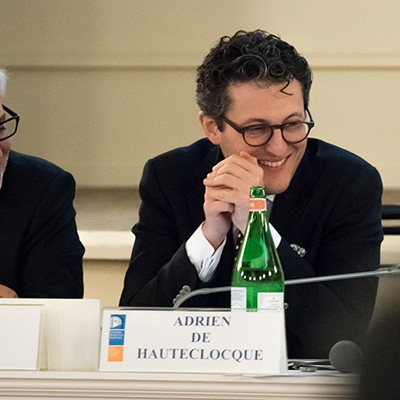REMIT: the emerging case law at EU and national level
This is the third installment of the Topic of the Month on REMIT
The enactment and beginning of implementation of the Regulation on Energy Market Integrity and Transparency (thereafter “REMIT”),[1] which introduces a EU-wide wholesale market monitoring framework, has constituted an important and innovative regulatory development. REMIT came into force in December 2011 and provided for an explicit prohibition of market manipulation, attempted market manipulation and insider trading, together with alternative (to antitrust) enforcement tools. It was indeed felt that the antitrust laws (in particular Article 102 TFEU and equivalent national provisions) were ill suited to tackle some of the most complex infringements, even though certain practices such as capacity withholding had been addressed successfully (see e.g. Case AT.39388, German electricity wholesale market).
Member States were required under REMIT to endow energy regulators with sufficient investigatory and prosecutorial powers to act upon these prohibitions. The first enforcement actions took place in 2015. Since then, we have seen a surge in enforcement by national regulatory authorities, under Article 5 REMIT in particular, which complements and partly overlaps with the scope of Article 102 TFEU by addressing ‘market manipulation’.[2] The enactment of REMIT, as of the Digital Markets Act lately, shows that the frontier between ex ante regulation and ex post enforcement of the antitrust laws is a moving one. National regulators are now increasingly involved in ex post control of firm behaviors through the enforcement of the REMIT framework.
Evolutions (and inconsistencies) in market designs, fast-paced decarbonisation policies and price volatility linked to the impending energy crisis make it more difficult for national authorities to monitor, investigate and define market abuse in wholesale energy markets. True, ACER guidance has been developed to guide national regulatory authorities and provide predictability to companies concerned. The German competition and energy regulatory authorities have also published joint guidance on market abuse under both legal frameworks (REMIT and antitrust). However, companies operating in energy wholesale markets remain in need of legal certainty.
Emerging case law at EU level
At the EU level, relevant case law remains sparse. The ECJ only made a passing reference to REMIT in three cases centered on the interpretation of other provisions of EU energy law (Directive 2009/72 in particular) as well as the rules on free movement of goods (C-347/16, Balgarska energiyna borsa; C-648/18, Hidroelectrica; C-767/19, Commission/Belgique). The EU Courts competition case law is not useful either as there is no case concerning abuses of dominance (Article 102 TFEU) in energy wholesale markets. Companies must thus rely on the decisional practice of the Commission, essentially adopted under Article 9 of Regulation 1/2003 and the so-called ‘commitment’ procedure. Two cases have addressed agreements and/or concerted practices (Article 101 TFEU) of operators who allegedly manipulated the EURIBOR (T-105/17, HSBC / Commission; C-883/19P, HSBC / Commission), but they do not include useful guidance in the REMIT context. The only one Courts case where energy market manipulation was tackled was a merger case, in the context of the E.ON/RWE asset swap (T-312( 22)/20, EVH/Commission).
The only relevant Courts cases at EU level thus concerned the financial market law on market manipulation and insider trading. In this regard, it is useful to recall that REMIT provisions concerning market manipulation and insider trading have been modelled on equivalent provisions adopted in the past under the Market Abuse Directive, later replaced by its homonym Regulation. Some of the national REMIT cases explicitly mention these cases. As regarding insider trading, the notions of inside information and rumours, or what it means to ‘use’ or ‘disclose’ inside information has been discussed in several important cases (C-384/02, Knud Grongaard / Allan Bang; C-45/08, Spector Photo Group; C-19/11, Geltl; C-302/20, Financial Market Authority). As regards market manipulation, companies should certainly have a look at cases C-174/12, Alfred Hirmann Immofinanz and C-445/09, IMC Securities / Stichting Autoriteit Financiële Markten. Overall, these cases provide insights but many questions remain unanswered.
Emerging cases at the national level
While the relevant case law remains sparse at the EU level, the number of cases at the national level is growing. There is an increasing number of infringement procedures under the REMIT, which is driven by the monitoring competence of ACER for collecting data through the registered reporting mechanisms combined with the investigation and enforcement powers granted to NRAs.[3]
Based on the data released by ACER, the NRAs have opened approximately 550 investigations in the last five years against possible REMIT breaches.[4] However, the number of cases closed with fines against market abuse is lower. Since REMIT is in force, NRAs have adopted 64 sanction decisions against market manipulation and three against insider trading.
With regard to market manipulation, it is worth mentioning that ANRE, the Romanian NRA, has adopted more than 55% of all NRA decisions. Between 2019 and now, ANRE has sanctioned market manipulation in 37 instances. Most undertakings have received administrative sanctions for trade behaviors qualified as wash trade of the A-B-A type, with few exceptions identified as pre-arranged transactions. Moreover, most sanctions targeted undertakings in the electricity sector, with few exceptions identified in the wholesale markets for natural gas. From 2019 to 2022, ANRE imposed 31 fines on undertakings ranging between EUR 80 000 and 162 000. However, the four most recent cases closed in early 2024 have deviated from the previous average fine and reached penalties between EUR 4 and 73 millionss, significantly exceeding the highest fine under REMIT of EUR 42 millions imposed on Intergen by Ofgem in 2020.
The other 27 sanctions against marker manipulation were imposed by eight different member states and the UK: Spain (CNMC) with five sanctions; UK (Ofgem) with four; France (CRE), Germany (BNetza), Italy (ARERA), Belgium (DKER), Hungary (MEKH) with three sanctions each; Denmark (DUR) with two sanctions; and Lithuania (NERC) with one. These sanctions are equally distributed between undertakings operating in electricity and gas wholesale markets. While the abusive conduct in the gas wholesale markets was mainly identified as layering and spoofing, wash trade and marking the close, undertakings in the electricity wholesale markets were sanctioned for capacity hoarding, generation capacity withholding and false or misleading information about capacity generations. Nine years have passed since the first REMIT infringement decision in 2015, with EUR 25 million in fines against Iberdrola Generación for market manipulation caused by generation capacity withholding in a hydropower plant. The dispute is still under appeal before the national court. Until 2023, nine out of 27 sanctions against market manipulations have surpassed the threshold of one million euros in fines, while ten infringement procedures were closed with fines lower than EUR 100 000. The discrepancies of values in fines have grounded questions and criticisms as to whether the penalties imposed on undertakings had a sufficient deterrent effect,[5] which led to the proposal of a legislative amendment to the REMIT concerning the harmonization of fines.[6]
The three REMIT sanctions involving insider trading were recently imposed by the French NRAs (CRE) in 2022 and 2023, two of them against the same company, Engie, for carrying out trading operations based on inside information.
Currently, ACER monitors the number of investigations and keeps an updated list of NRA decisions that imposed sanctions for REMIT breaches on this webpage. However, the dataset does not include investigations closed with no sanctions, nor does it include the reasoning of administrative decisions for concluding with sanctions or trace subsequent proceedings in national courts. This information would nonetheless be particularly useful to increase awareness and certainty about the application of the REMIT. It would also be relevant in view of the amendment to the REMIT, which will enlarge the competence of ACER to pursue investigations of market abuses with cross-border effects.[7]
[1] Regulation 1227/2011 of the European Parliament and of the Council of 25 October 2011 on wholesale energy market integrity and transparency, OJ 2011, L 326/1.
[2] Although the objectives of REMIT come close to the objectives of EU competition law (i.e., in particular, to prevent exclusionary or exploitative practices by dominant undertakings), there are some important differences. Article 102 of the Treaty on the functioning of the European Union (TFEU) can and has been applied, for instance, to deal with capacity withholding by dominant firms, but under certain well-defined conditions which includes the existence of a dominant position. This is in contrast to the application of REMIT as the relevant provisions apply to all market participants – i.e., non-dominant undertakings. Whereas REMIT’s focus is on ‘integrity and transparency’, Art 102 TFEU has a narrower economic focus.
[3] See the first installment of the topic of the month by Alberto Pototschnig, ´The origins of REMIT and its initial implementation´
[4] According to the REMIT Quarterly Issues published by ACER from 2019 to 2023. See REMIT Quarterly, Issues No. 34/Q3 2023, 31/Q4 2022, 27/Q4 2021, 23/Q4 2020, 19/Q4 2019.
[5] See European Commission, Commission Staff Working Document on Reform of the Electricity Market Design, SWD(2023) 58 final, p. 102.
[6] See proposed amendment of Article 18(2) to the REMIT, COM(2023)147.
[7] See proposed amendment of Article 13(3) to the REMIT, COM(2023)147.







